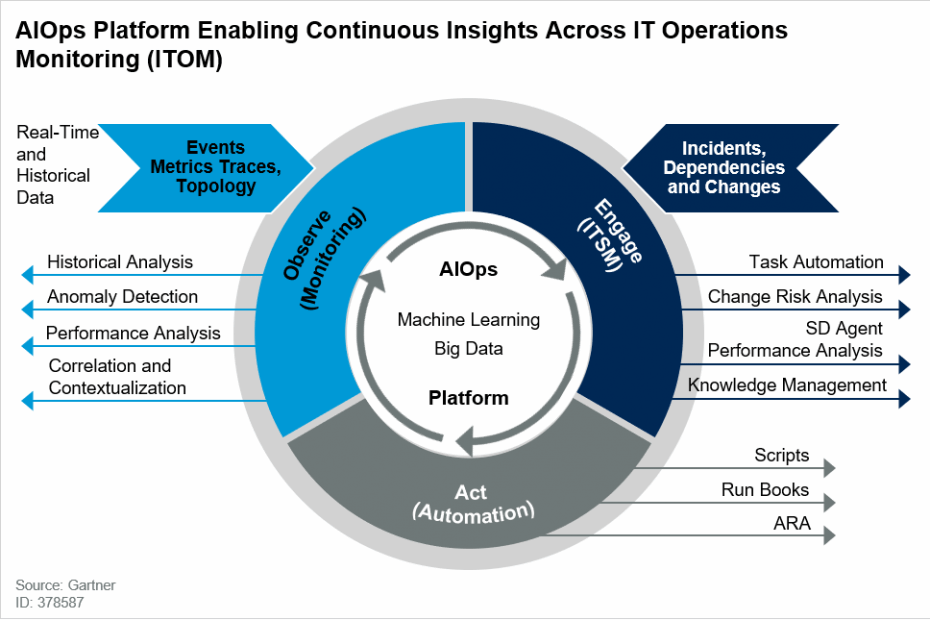The ecommerce landscape is undergoing a transformative shift, fueled by the rise of artificial intelligence (AI). As an ecommerce marketing manager, you now have access to a vast array of AI tools for ecommerce that can revolutionize your campaigns, drive sales, and keep you ahead of the competition.
Toc
AI has become a game-changing force in the ecommerce industry, offering a multitude of benefits. By leveraging ecommerce AI tools, you can deliver highly personalized customer experiences, streamline your operations, and gain data-driven insights to drive your decision-making.
One of the key advantages of AI in ecommerce marketing is the ability to create personalized customer experiences. AI-powered recommendation engines can analyze customer behavior and purchase history to suggest products and services tailored to their individual preferences. This personalization not only enhances customer satisfaction but also boosts conversion rates and sales.
For instance, Amazon’s recommendation engine, powered by machine learning, analyzes billions of data points to predict what products a customer might be interested in based on their browsing history, past purchases, and even items frequently bought together. This has resulted in a significant increase in Amazon’s sales, with a 2020 study by Statista revealing that 35% of Amazon’s sales were driven by recommendations. Similarly, Netflix’s recommendation algorithm has been highly successful in predicting user preferences and suggesting movies and TV shows, leading to increased engagement and subscriptions.
Moreover, AI can significantly improve the efficiency of your marketing workflows. Automated content creation tools, for instance, can generate high-quality product descriptions, blog posts, and social media content, freeing up your time to focus on other critical tasks. AI-powered chatbots can also handle customer inquiries and provide 24/7 support, enhancing the overall customer experience.
Exploring the Applications of AI in Ecommerce Marketing

AI is being used in a multitude of ways to enhance ecommerce marketing, each offering unique advantages. Let’s dive into some of the common applications of ecommerce AI tools in this space.
Personalized Recommendations
AI-powered recommendation engines are revolutionizing how ecommerce businesses interact with their customers. By analyzing customer behavior and browsing history, these engines can suggest relevant products and services, enhancing the customer experience and driving sales. For example, platforms like Amazon use sophisticated algorithms to recommend products based on previous purchases, browsing history, and even items that are frequently bought together.
While personalized recommendations can be highly effective, there are concerns about data privacy. Some customers may feel uncomfortable with the level of data collection and analysis required for personalized recommendations. Ecommerce businesses need to be transparent about their data practices and ensure they comply with data privacy regulations such as GDPR and CCPA.
Chatbots for Customer Service
AI-powered chatbots are becoming increasingly common in ecommerce, providing instant, personalized assistance to customers. These chatbots can address customer queries and concerns 24/7, improving customer satisfaction and reducing response times. A well-designed chatbot can handle a wide range of inquiries, from tracking orders to answering product questions, thereby freeing up human agents for more complex issues.
While chatbots can handle many customer inquiries efficiently, they are not a replacement for human customer service. Chatbots can struggle with complex or emotional inquiries, and they may not be able to provide the same level of empathy and understanding as a human agent. Ecommerce businesses should carefully consider the limitations of chatbots and ensure that they have a human team available to handle more complex customer issues.
Automated Content Creation
AI tools can generate high-quality product descriptions, blog posts, and social media content, streamlining the content creation process and ensuring consistent, engaging messaging across your marketing channels. For instance, an ecommerce brand can use AI to automatically generate product descriptions that highlight key features and benefits, saving time and ensuring uniformity in tone and style.
Email Marketing Optimization
AI can optimize email marketing campaigns by analyzing customer data, segmenting audiences, and automating personalized content and send-time optimization, leading to higher engagement and conversion rates. By utilizing AI algorithms, marketers can predict the best times to send emails based on user behavior, increasing open rates and engagement.
- https://gopmik.xyz/seamless-ai-reviews-transforming-b2b-sales-prospecting-with-ai/
- https://gopmik.xyz/the-ultimate-guide-to-the-best-ai-medical-scribes-boost-your-efficiency-and-patient-care/
- https://gopmik.xyz/the-top-ai-tools-for-small-business-in-2024/
- https://gopmik.xyz/top-ai-software-development-companies-to-watch-in-2024/
- https://gopmik.xyz/the-rise-of-ai-contract-review-revolutionizing-legal-efficiency/
Predictive Analytics
AI-powered predictive analytics tools can forecast customer behavior, sales trends, and market shifts, enabling ecommerce marketers to make data-driven decisions and stay ahead of the competition. For example, predictive analytics can help identify which products are likely to become popular in the upcoming season, allowing businesses to adjust inventory and marketing strategies accordingly.
Top AI Tools for Ecommerce Marketing Managers in 2024

As an ecommerce marketing manager, you have access to a diverse array of AI tools for ecommerce to enhance your marketing campaigns. Let’s explore some of the top ecommerce AI tools that can help you drive success in 2024.
AI-Powered Content Creation and Optimization
- Jasper: Jasper is an AI-powered content generation tool that can assist you in creating high-quality marketing copy, blog posts, and social media content. Its machine learning algorithms can analyze your brand voice and target audience to produce engaging, personalized content that resonates with your customers.
- Frase: Frase is an AI-powered content research and optimization tool that can help you create SEO-friendly content. It provides in-depth analysis of your target keywords, identifies content gaps, and suggests optimizations to improve your website’s search engine rankings.
- Writerly.ai: Writerly.ai is an AI-powered content generation and editing tool that can help you create and refine engaging content in multiple languages. Its user-friendly interface and automated content creation capabilities can save you time and ensure consistent, high-quality content across your marketing channels.
AI for Personalized Marketing and Email Marketing
- OptiMonk AI: OptiMonk AI is an AI-powered conversion rate optimization (CRO) platform that can automate A/B testing and website personalization. By leveraging AI, it can analyze customer behavior and deliver personalized experiences, leading to increased conversions and sales.
- RetentionX: RetentionX is an AI-powered customer retention tool that can analyze customer data to predict churn and create personalized retention campaigns. By identifying at-risk customers and tailoring your email marketing efforts, you can improve customer loyalty and lifetime value.
- Lavender: Lavender is an AI-powered sales email coaching tool that can provide feedback and suggestions to improve your sales email effectiveness. By optimizing email copy and personalizing introductions, Lavender can help you boost open rates and response rates.
Implementing AI Tools in Your Ecommerce Marketing Strategy

Integrating ecommerce AI tools into your marketing strategy can be a game-changer, but it’s important to approach the process thoughtfully. Here’s a step-by-step guide to help you choose and implement the right AI tools for your business.
Choosing the Right AI Tools
- Define Your Marketing Objectives: Start by clearly defining your ecommerce marketing goals, whether it’s improving customer experiences, increasing conversion rates, or enhancing operational efficiency.
- Research Available AI Tools: Explore the various AI tools available in the market and evaluate their features, benefits, and alignment with your marketing objectives. Look for tools that not only meet your current needs but also have the potential to scale with your business.
- Consider Your Budget and Resources: Assess your budget and the technical resources available within your team to ensure you select AI tools that are a good fit for your ecommerce business. Some tools may require more technical expertise or investment than others.
- Read Reviews and Case Studies: Consult reviews and case studies to understand the real-world performance of the AI tools you’re considering and how they’ve impacted the success of other ecommerce businesses. This can provide valuable insights into the effectiveness of each tool.
- Test and Evaluate: Before making a long-term commitment, take the time to test different AI tools and evaluate their effectiveness in your specific ecommerce environment. Many tools offer free trials or demo versions, allowing you to assess their capabilities firsthand.
Integrating AI Tools
- Ensure Compatibility: Ensure that the AI tools you select are compatible with your existing ecommerce platform, marketing tools, and data sources. This will help facilitate a smoother integration process.
- Set Up Data Integration: Establish seamless data integration between your AI tools and your ecommerce systems to enable the flow of customer and performance data. Proper data integration is critical for maximizing the effectiveness of AI tools.
- Train Your Team: Provide comprehensive training to your marketing team on how to effectively use and leverage the AI tools you’ve implemented. A well-informed team is essential for maximizing the potential of these tools.
- Monitor and Optimize: Continuously monitor the performance of your AI tools and make adjustments as needed to optimize their impact on your ecommerce marketing efforts. Regularly reviewing performance metrics can help identify areas for improvement.
Real-World Examples of AI in Action

Amazon’s Personalized Shopping Experience
Amazon has long been at the forefront of leveraging AI to create a highly personalized shopping experience for its customers. Through sophisticated recommendation algorithms, Amazon analyzes vast amounts of data from browsing history, purchase patterns, and individual preferences to suggest products that are highly relevant to each user. This level of personalization not only enhances customer satisfaction but also significantly boosts sales and customer retention. Additionally, Amazon’s use of AI extends to its Alexa-powered devices, which provide personalized voice shopping experiences, and its dynamic pricing strategies powered by machine learning ensure competitive pricing for the consumer. By seamlessly integrating AI into its ecommerce operations, Amazon sets a benchmark for other businesses striving to enhance their customer interactions and optimize their sales strategies.
Sephora’s Use of AI for Virtual Try-Ons
Sephora has embraced AI technology to revolutionize the beauty shopping experience with its Virtual Artist feature. This innovative tool utilizes augmented reality (AR) and AI to allow customers to virtually try on a wide array of makeup products, from lipsticks to eyeshadows. By using a smartphone or in-store digital device, shoppers can see how different products look on their skin tone and facial features without the need for physical samples. This not only enhances the shopping experience by providing personalized recommendations and decreasing the uncertainty of online purchases but also reduces waste and minimizes the need for physical testers. Sephora’s integration of AI into its ecommerce strategy exemplifies how technology can bridge the gap between online and in-store experiences, making beauty shopping more engaging and customer-centric.
Nordstrom’s Inventory Management with AI
Nordstrom, a leading fashion retailer, has adeptly utilized AI to streamline its inventory management processes. By leveraging AI-driven analytics, Nordstrom can predict demand more accurately, ensuring that the right products are stocked in the right quantities. This predictive ability reduces both overstock and stockouts, optimizing the company’s supply chain efficiency and minimizing potential revenue losses. Additionally, AI helps Nordstrom personalize its inventory to align with customer preferences, which vary by region and demographic. By tailoring their inventory management through AI, Nordstrom not only enhances the shopping experience by having popular items readily available but also maximizes sales efficiency and customer satisfaction. As a result, the company remains competitive in the retail space, demonstrating how AI can significantly improve operational logistics and customer-centric strategies.
Spotify’s AI-Driven Music Recommendations
Spotify is another stellar example of how AI can be used to personalize user experiences effectively. The music streaming giant employs advanced machine learning algorithms to analyze users’ listening habits, preferences, and even mood-related data to provide customized playlists and song recommendations. Features such as “Discover Weekly” and “Daily Mix” are curated by AI models that continually refine their understanding of a user’s musical taste as they engage with the platform. This level of personalization not only enhances user satisfaction by introducing listeners to new artists and tracks they are likely to enjoy, but it also increases user engagement and retention. Spotify’s innovative use of AI highlights the potential for businesses to use technology to create deeply personalized and memorable user experiences, ultimately fostering a loyal customer base.
Conclusion

In conclusion, the integration of AI tools within the ecommerce industry is no longer a futuristic concept, but a present reality that offers immense potential for businesses to enhance their operations, personalize customer experiences, and drive significant growth. As demonstrated by industry leaders like Amazon, Sephora, Nordstrom, and Spotify, AI can be effectively applied to a diverse range of functions including personalized shopping recommendations, virtual product try-ons, efficient inventory management, and music curation. By embracing these technologies, companies can not only streamline their operations and improve supply chain efficiency but also build stronger relationships with their customers through tailored experiences. As AI technology continues to evolve, it is crucial for businesses to stay informed and proactive in exploring new AI solutions that can further enhance their ecommerce strategies, ensuring they remain competitive in an ever-evolving market.









